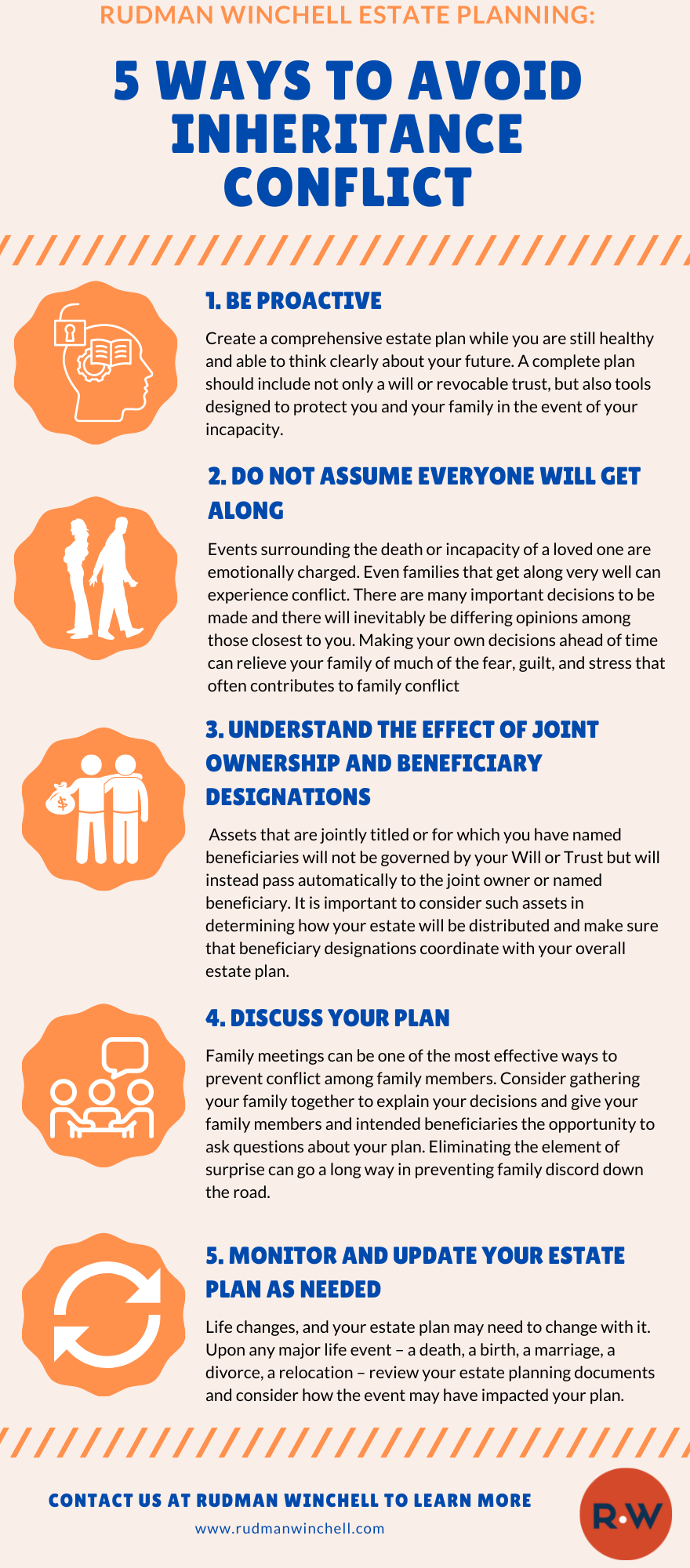
Similar Posts

You’ve Been Named a Trustee: Overwhelmed? We’re Here to Help!
Being named a trustee is an honor, but it also comes with significant responsibilities that can feel overwhelming at first. As a trustee, your primary duty is to preserve and manage trust assets, ensure proper distributions according to the trust’s terms, maintain clear financial records, and communicate regularly with beneficiaries. You must remain impartial, especially…
Detecting Elder Abuse
For years, Maine has been the oldest state in the nation. Our median age has risen to 44.9. About 21.2% of the state population is 65 or older. Elder abuse is prevalent and especially difficult to detect because these individuals often are reluctant or unable to report abuse, whether financial or physical. Elderly individuals may excuse…
Attorneys Candace Augustine and Stephen Wagner Promoted to Senior Counsel at Rudman Winchell
Bangor, Maine, January 1, 2022 – Rudman Winchell is pleased to announce that attorneys Candace T. Augustine and Stephen W. Wagner have been named senior counsel. Candace and Stephen have been promoted to this senior position because of their deep understanding of their practice areas and their record of success on behalf of their clients….
Important Developments Regarding the Laws on Delegation of Parental Rights
For various reasons, sometimes parents are unable to care for their children. For example, a child may be taking a trip out of state with a school or extracurricular program and an unrelated adult supervising the trip needs authority to make medical decisions if a problem arises. Other situations might be more long-term, such as…
Medicaid Estate Recovery: Will the State Take my House?
There is a lot of misinformation and confusion surrounding estate recovery and the Maine Medicaid (MaineCare) long-term care benefit. One of the biggest fears we hear from aging Mainers is, “I don’t want the State to take my house.” That only happens in the context of a process called estate recovery. Estate recovery can only…
What to Do with Stimulus Checks Received by Estates
You may have been seeing, reading, or hearing on your favorite source of media that stimulus checks are being delivered to some of our deceased relatives. Can the estate keep it? Personal Representatives of estates have been asking what to do if they receive a direct deposit or a check in the mail with this…

You’ve Been Named a Trustee: Overwhelmed? We’re Here to Help!
Being named a trustee is an honor, but it also comes with significant responsibilities that can feel overwhelming at first. As a trustee, your primary duty is to preserve and manage trust assets, ensure proper distributions according to the trust’s terms, maintain clear financial records, and communicate regularly with beneficiaries. You must remain impartial, especially…
Detecting Elder Abuse
For years, Maine has been the oldest state in the nation. Our median age has risen to 44.9. About 21.2% of the state population is 65 or older. Elder abuse is prevalent and especially difficult to detect because these individuals often are reluctant or unable to report abuse, whether financial or physical. Elderly individuals may excuse…
Attorneys Candace Augustine and Stephen Wagner Promoted to Senior Counsel at Rudman Winchell
Bangor, Maine, January 1, 2022 – Rudman Winchell is pleased to announce that attorneys Candace T. Augustine and Stephen W. Wagner have been named senior counsel. Candace and Stephen have been promoted to this senior position because of their deep understanding of their practice areas and their record of success on behalf of their clients….
Important Developments Regarding the Laws on Delegation of Parental Rights
For various reasons, sometimes parents are unable to care for their children. For example, a child may be taking a trip out of state with a school or extracurricular program and an unrelated adult supervising the trip needs authority to make medical decisions if a problem arises. Other situations might be more long-term, such as…
Medicaid Estate Recovery: Will the State Take my House?
There is a lot of misinformation and confusion surrounding estate recovery and the Maine Medicaid (MaineCare) long-term care benefit. One of the biggest fears we hear from aging Mainers is, “I don’t want the State to take my house.” That only happens in the context of a process called estate recovery. Estate recovery can only…
What to Do with Stimulus Checks Received by Estates
You may have been seeing, reading, or hearing on your favorite source of media that stimulus checks are being delivered to some of our deceased relatives. Can the estate keep it? Personal Representatives of estates have been asking what to do if they receive a direct deposit or a check in the mail with this…

You’ve Been Named a Trustee: Overwhelmed? We’re Here to Help!
Being named a trustee is an honor, but it also comes with significant responsibilities that can feel overwhelming at first. As a trustee, your primary duty is to preserve and manage trust assets, ensure proper distributions according to the trust’s terms, maintain clear financial records, and communicate regularly with beneficiaries. You must remain impartial, especially…
Detecting Elder Abuse
For years, Maine has been the oldest state in the nation. Our median age has risen to 44.9. About 21.2% of the state population is 65 or older. Elder abuse is prevalent and especially difficult to detect because these individuals often are reluctant or unable to report abuse, whether financial or physical. Elderly individuals may excuse…
Attorneys Candace Augustine and Stephen Wagner Promoted to Senior Counsel at Rudman Winchell
Bangor, Maine, January 1, 2022 – Rudman Winchell is pleased to announce that attorneys Candace T. Augustine and Stephen W. Wagner have been named senior counsel. Candace and Stephen have been promoted to this senior position because of their deep understanding of their practice areas and their record of success on behalf of their clients….
Important Developments Regarding the Laws on Delegation of Parental Rights
For various reasons, sometimes parents are unable to care for their children. For example, a child may be taking a trip out of state with a school or extracurricular program and an unrelated adult supervising the trip needs authority to make medical decisions if a problem arises. Other situations might be more long-term, such as…
Medicaid Estate Recovery: Will the State Take my House?
There is a lot of misinformation and confusion surrounding estate recovery and the Maine Medicaid (MaineCare) long-term care benefit. One of the biggest fears we hear from aging Mainers is, “I don’t want the State to take my house.” That only happens in the context of a process called estate recovery. Estate recovery can only…
What to Do with Stimulus Checks Received by Estates
You may have been seeing, reading, or hearing on your favorite source of media that stimulus checks are being delivered to some of our deceased relatives. Can the estate keep it? Personal Representatives of estates have been asking what to do if they receive a direct deposit or a check in the mail with this…


